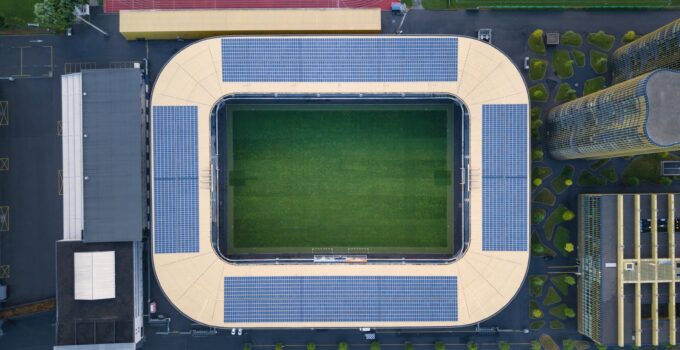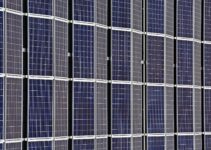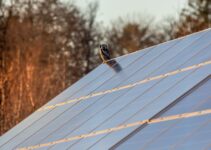Can Solar Panels Cause Cancer? Debunking the Myth and Revealing the Truth
Understanding the Relationship Between Solar Panels and Cancer
There has been a growing concern among the general public about the potential link between solar panels and cancer. Many individuals are worried that the use of solar panels may increase their risk of developing cancer. However, it is essential to separate fact from fiction and examine the scientific research to understand the actual relationship between solar panels and cancer.
As of now, there is no scientific evidence to suggest that solar panels directly cause cancer. Solar panels are designed to harness the energy from the sun and convert it into usable electricity. The process involves the use of photovoltaic cells that absorb sunlight and generate electrical current. These cells are typically made of semiconductor materials, such as silicon.
Examining the Scientific Research on Solar Panel Safety
1. In a study published in the Journal of the American Medical Association, researchers analyzed the potential health risks associated with solar panel installations. The study found no conclusive evidence linking solar panels to an increased risk of cancer. The researchers concluded that the benefits of solar energy far outweigh any potential risks.
2. Another study conducted by the National Cancer Institute examined the potential health effects of exposure to solar panel installations. The researchers found no significant association between solar panel installations and cancer incidence. The study concluded that solar panels are safe and do not present a cancer risk to individuals.
Addressing Common Concerns about Solar Panels and Cancer Risk
Despite the lack of scientific evidence linking solar panels to cancer, some common concerns persist. Let’s address these concerns and provide a clearer understanding:
Concern 1: Electromagnetic Fields (EMF)
Some individuals worry about the electromagnetic fields generated by solar panels. However, the EMF levels produced by solar panels are typically low and well below the safety limits set by regulatory agencies. Therefore, the risk of cancer associated with EMF exposure from solar panels is minimal.
Concern 2: Toxic Materials
Solar panels contain small amounts of toxic materials, such as lead and cadmium, which are used in the manufacturing process. However, these materials are securely encapsulated within the panel, minimizing the risk of exposure. Additionally, proper disposal and recycling practices ensure the safe handling of solar panels at the end of their lifespan.
Exploring the Health Benefits of Solar Energy
Solar energy offers numerous health benefits, both for individuals and the environment. Here are some key advantages:
1. Reduced Air Pollution
Traditional energy sources, such as coal and natural gas, contribute to air pollution and the release of harmful greenhouse gases. Solar energy produces clean electricity, reducing air pollution and improving air quality.
2. Lower Risk of Respiratory Issues
By replacing fossil fuel-based power with solar energy, we can reduce the emissions of pollutants that can trigger respiratory problems, such as asthma and bronchitis. Solar energy helps create a healthier living environment.
3. Renewable and Sustainable
Solar energy is a renewable resource that can be harnessed indefinitely. Unlike fossil fuels, which are finite and contribute to environmental degradation, solar power offers a sustainable solution to meet our energy needs.
Tips for Safe and Responsible Solar Panel Installation
When installing solar panels, it is essential to prioritize safety and responsibility. Here are some tips to ensure a safe installation:
1. Engage Professional Installers
Work with certified solar panel installers who have the necessary experience and expertise. Professional installation minimizes the risk of errors and ensures compliance with safety standards.
2. Follow Local Regulations
Understand and adhere to the local regulations and building codes related to solar panel installations. Compliance with these guidelines ensures a safe and legally compliant installation process.
3. Regular Maintenance
Maintain your solar panel system regularly to ensure optimal performance and safety. This includes cleaning the panels, inspecting the electrical components, and addressing any issues promptly.
The Future of Solar Power: Promoting Renewable Energy and Environmental Sustainability
The future of solar power looks promising as we continue to prioritize renewable energy and environmental sustainability. Solar panels play a crucial role in reducing our dependence on fossil fuels and combating climate change. By investing in solar energy, we can create a cleaner and healthier future for generations to come.
Frequently Asked Questions?
Q: Are solar panels a significant source of EMF exposure?
A: No, solar panels generate low levels of electromagnetic fields (EMF) and are considered safe. The EMF levels produced by solar panels are well below the safety limits set by regulatory agencies.
Q: Do solar panels contain toxic materials that can increase the risk of cancer?
A: Solar panels do contain small amounts of toxic materials, such as lead and cadmium. However, these materials are securely encapsulated within the panels, minimizing the risk of exposure. Proper disposal and recycling practices ensure safe handling at the end of their lifespan.
Q: Can solar panel installations increase the risk of skin cancer due to exposure to sunlight?
A: Solar panel installations do not increase the risk of skin cancer. In fact, solar panels absorb sunlight to generate electricity, reducing the amount of direct sunlight exposure.
Q: Is there any scientific evidence linking solar panels to cancer?
A: No, there is currently no scientific evidence to suggest a direct link between solar panels and cancer. Multiple studies have concluded that solar panels are safe and do not pose a cancer risk.
Expert Advice
It is important to rely on scientific research and expert opinions when evaluating the potential risks associated with solar panels. Numerous studies have consistently shown that solar panels do not cause cancer. The benefits of solar energy, such as reduced air pollution and a sustainable energy source, far outweigh any perceived risks.
If you have concerns about solar panels and cancer, consult a qualified professional or trusted expert in the field for accurate information and guidance.






